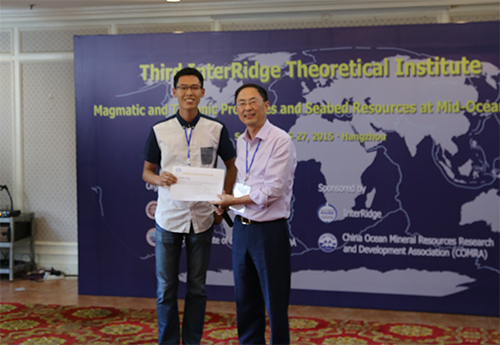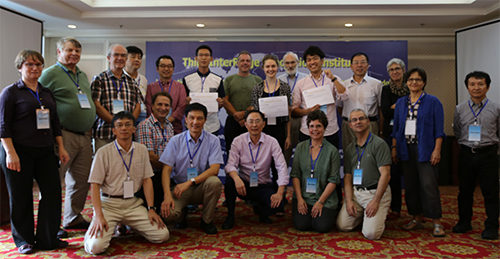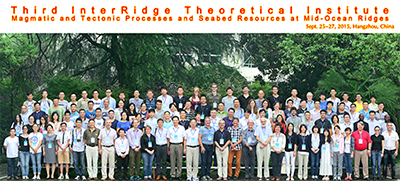The Third InterRidge Theoretical Institute closed on September 27, 2015 in Hangzhou. Huatian Zhang, a PhD student from Jianghai Li research group, School of Earth and Space Sciences, Peking University, gave a short presentation entitled Different Crust Failure Modes Controlled by Spreading Obliquity and Its Implication: Insight from Southwest Indian Ridge 46-52.5°E. The presentation was awarded with Excellent Student Presentation.

InterRidge is a non-profit organisation that promotes interdisciplinary, international studies in the research of oceanic spreading centres. It does so by creating a global research community, planning and coordinating new science programmes that no single nation can achieve alone, exchanging scientific information, and sharing new technologies and facilities. The theme of the theoretical institute is Magmatic and Tectonic Processes and Seabed Resources at Mid-Ocean Ridge, which includes two themes: Magmatic and Tectonic Processes and Seabed Resources. Reports and seminars were given by marine researchers from China, America, France, Britain, Germany, Japan, Russian, etc. The theoretical institute also assigned short presentations and posters, and selected 3 Excellent Student Presentation awards. The other two prize-winner comes from University of Tokyo and Durham University.

The research area of the presentation given by Jianghai Li research group is the hydrothermal sulfide contract area of China, which lies between 46°E and 52.5°E along Southwest Indian Ridge. China obtained the exclusive exploration right and commercial priority of 10,000 km2 regions in this area, approved by International Seabed Authority. This segment of Southwest Indian Ridge is an ultraslow spreading ridge, characterized by oblique spreading. Presentation of Jianghaili research group demonstrated advances of structural characters of oblique spreading in this area. This work is done under joint research with Chunhui Tao research group from Second Institute of Oceanography, State Oceanography Administration.
